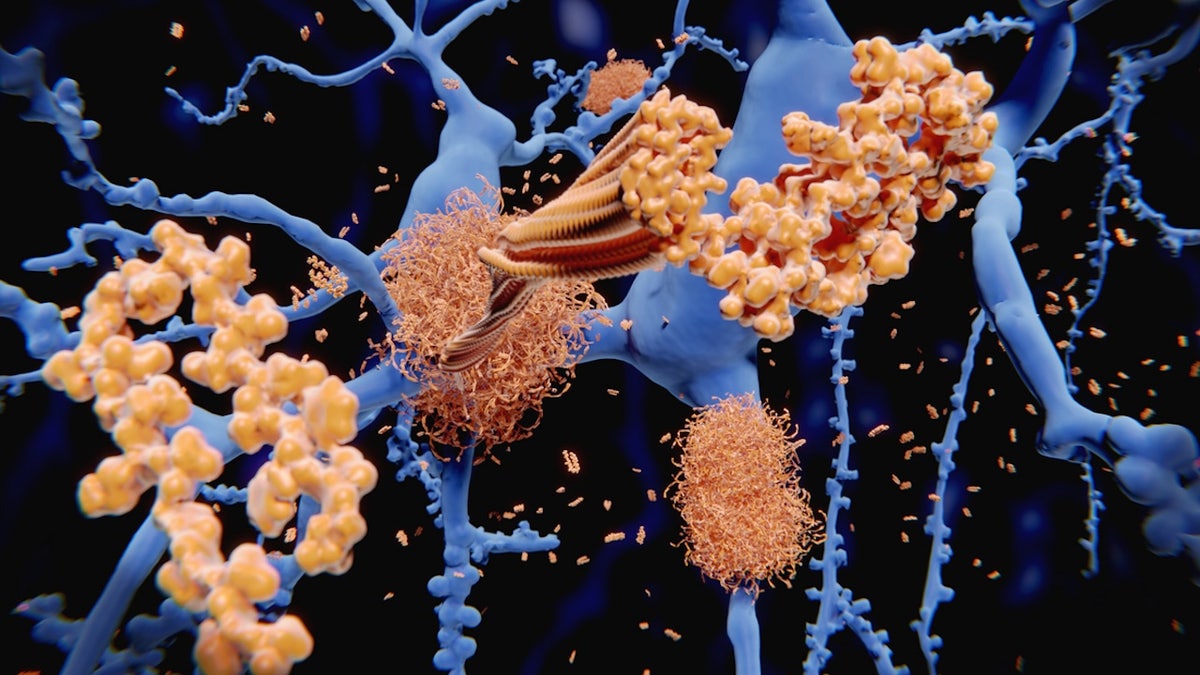Join Fox News for access to this content
Plus special access to select articles and other premium content with your account - free of charge.
By entering your email and pushing continue, you are agreeing to Fox News' Terms of Use and Privacy Policy, which includes our Notice of Financial Incentive.
Please enter a valid email address.
With an estimated 6.9 million Americans aged 65 and older currently living with Alzheimer's disease, the road to a cure seems long and uncertain.
But as the year comes to a close, experts are reflecting on some of the hopeful advances in diagnosis, treatment and risk management that have been made in 2024.
The Alzheimer’s Association — a Chicago-based nonprofit committed to Alzheimer’s research, care and support — shared its top five significant discoveries from the year.
DEMENTIA REPORT REVEALS 'SHOCKING' SIGNS AT AGE 60 THAT YOU'LL DEVELOP THE DISEASE BY AGE 80
1. Third new Alzheimer’s drug is approved
2024 saw a new drug enter the dementia landscape, as the U.S. Food and Drug Administration (FDA) approved Kisunla (donanemab) in July.
This was the third new approval since 2021.

The Alzheimer’s Association — a Chicago-based nonprofit committed to Alzheimer’s research, care and support — shared its top five significant discoveries from the year. (iStock)
Kisunla, which is made by Eli Lilly, is designed to "slow progression and change the underlying course of the disease," according to the Association’s press release.
The once-monthly injection is intended for adults with early symptomatic Alzheimer's disease.
This is the first medication to target amyloid plaques — the proteins that build up in the brains of Alzheimer’s patients, often impairing memory and cognitive function — with evidence to support stopping therapy when amyloid plaques are removed, a company release stated.
‘HIDDEN’ FAT COULD PREDICT ALZHEIMER’S DISEASE UP TO 20 YEARS BEFORE SYMPTOMS, RESEARCH FINDS
"This is real progress," said Alzheimer’s Association President and CEO Dr. Joanne Pike in a statement shared with Fox News Digital at the time.
"[This FDA] approval allows people more options and greater opportunity to have more time. Having multiple treatment options is the kind of advancement we’ve all been waiting for."
2. Blood tests could improve speed and accuracy of diagnosis
Research this year has helped move Alzheimer’s blood tests closer to being used in physicians' offices.
Studies have shown that blood tests can achieve a higher accuracy of diagnosis, which could help fast-track patients’ access to clinical trials and treatments, according to the Alzheimer’s Association.
"This is real progress."
"Blood tests for Alzheimer’s are demonstrating in research that they could significantly improve a clinician’s accuracy and confidence, provide greater accessibility and a reason for more communication," the same source stated.
In one study reported this year, a specific blood test was around 90% accurate in identifying Alzheimer’s in patients with cognitive symptoms seen in primary care and at specialized memory care clinics, per the Association.
3. Individuals and caregivers want more support post-diagnosis
People who are newly diagnosed with Alzheimer’s and their caregivers need more support in navigating the health care system.
That’s according to a 2024 Alzheimer’s Association survey, which found that 97% of dementia caregivers expressed a desire for those support systems.

2024 saw the approval of the first medication to target amyloid plaques, the proteins that build up in the brains of Alzheimer’s patients and often impair memory and cognitive function. (iStock)
A majority of dementia caregivers (70%) also noted that "coordination of care is stressful."
To help address this, the Centers for Medicare & Medicaid Services in July 2024 launched an eight-year pilot program in dementia care management, called the Guiding an Improved Dementia Experience (GUIDE) model.
DEMENTIA RISK COULD BE LINKED TO WALKING SPEED, STUDY SUGGESTS
The program aims to work with health care systems to provide supportive services to people living with dementia and their caregivers, with a focus on helping patients remain in their homes and communities, according to the Alzheimer’s Association.
4. Wildfire smoke raises risk of dementia
Air pollution has been linked to an increased risk of dementia, according to 2024 research.
The 10-year study, which was presented during the Alzheimer’s Association International Conference in Philadelphia in July, found that wildfire smoke can be "particularly hazardous" for brain health.

A 2024 Alzheimer’s Association survey found that 97% of dementia caregivers expressed a desire for those support systems. (iStock)
The research included more than 1.2 million people in southern California, an area that experiences frequent wildfire activity.
CLICK HERE TO GET THE FOX NEWS APP
Air pollution produced by wildfires could be more hazardous to health because it is produced at higher temperatures, contains a greater concentration of toxic chemicals, and is smaller in diameter than other sources, the Alzheimer’s Association stated.
5. Alzheimer’s causes physical changes in the brain
In June 2024, scientists and clinicians published research that showed physical changes that happen in the brain due to Alzheimer’s disease.
CLICK HERE TO SIGN UP FOR OUR HEALTH NEWSLETTER
"Defining diseases by the biology has long been standard in many areas of medicine — including cancer, heart disease and diabetes," the Alzheimer’s Association wrote.

In June 2024, scientists and clinicians published research that showed physical changes that happen in the brain due to Alzheimer’s disease. (iStock)
"The new publication defines Alzheimer’s as a biological process that begins with brain changes before people exhibit memory and thinking problems."
These brain changes were found to come ahead of the typical outward symptoms, such as memory loss, confusion, disorientation and trouble with planning or organizing.
For more Health articles, visit www.foxnews.com/health
Additional research and support resources from the Alzheimer’s Association can be found at www.alz.org.
.png)
 1 week ago
10
1 week ago
10


































 Bengali (BD) ·
Bengali (BD) ·  English (US) ·
English (US) ·